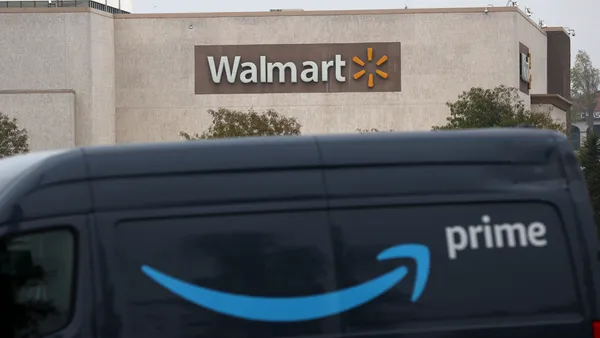Dive Brief:
- A redesigned IATA-FIATA Air Cargo Agreement is easing the way for cargo carriers to deal directly with shippers rather than freight forwarders, Air Cargo News reported Monday. The program is currently being piloted in Canada.
- However, airlines are denying interest in pursuing this option, insisting that freight forwarders are their true customers.
- Waiting in the wings are digital intermediaries like Gurucargo, an online platform from Uruguay. Though claiming to save shippers at least 30%, it outsources all extras such as customs clearances and warehousing, and does not list guaranteed prices for those services.
Dive Insight:
The ongoing debate about the value of freight forwarders has risen to new heights.
Roughly two-thirds of logistics personnel expect that traditional air freight forwarding could shrink within the next five years due to tech start-ups and carriers, yet a core of freight forwarders believe that even if digitization eventually dominates the industry, they will remain relevant, working behind the scenes arranging the details of customs clearance and warehousing. This is despite the hard to ignore plethora of startups with unified technology platforms arriving on the scene, muscling their way into the freight booking business.
C.H. Robinson is a global 3PL and supply chain management provider. The company sees both the benefits and risks of direct carrier bookings. "At the end of the day, carriers have the ability to manage freight in any way they see fit," Matt Castle, vice president of global forwarding – products & services at C.H. Robinson, told Supply Chain Dive. "That being said, the necessary resources required to support this type of business would likely deter most carriers from cutting ties with a forwarder. Without a forwarder, they would likely see a significant rise in operational expenses to cover things like customer service, booking, and security."
In other words, the savings achieved by cutting out the middleman — the freight forwarder — may simply be redirected. "Competitive market prices are primarily driven by the consolidation services offered by freight forwarders," Castle continued. "In the age of e-commerce, shippers are increasingly relying on end-end solutions for their supply chain, not airport-airport. Additionally, shippers that leverage a forwarder will likely achieve better rates through consolidation than if they had in fact booked directly with the carrier."
Ultimately, the degree of effort and responsibility undertaken by the shipper will determine what she pays. "Complications won’t necessarily prevent the carrier audience from pursuing a direct model, but the incentives are drastically diminished by the risk and expenses brought on by the change," Castle concluded.













